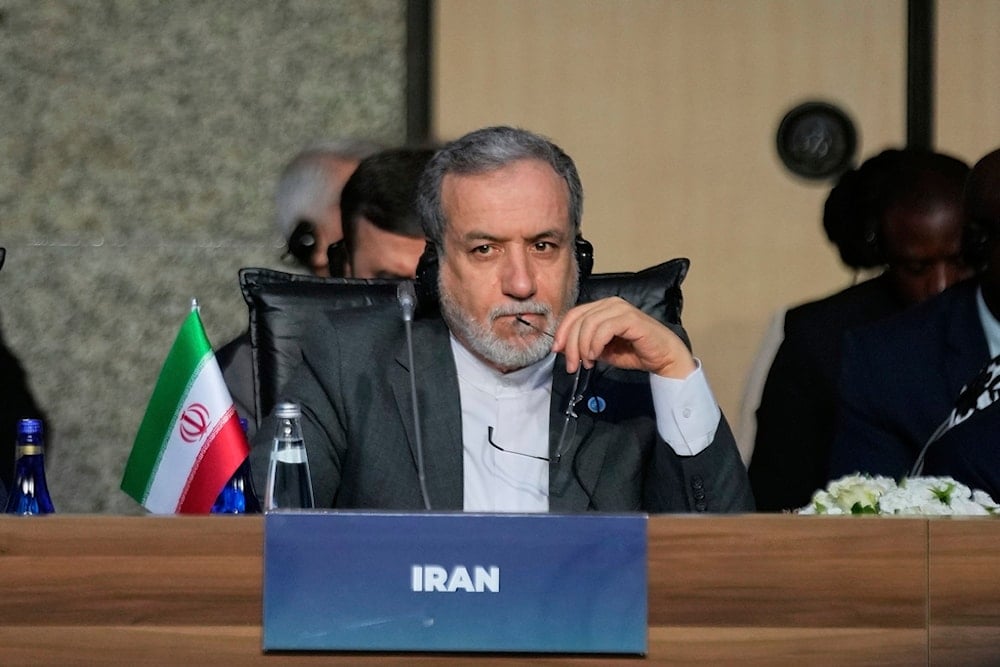Iran, E3 agree to resume nuclear talks amid snapback sanctions threat
Iran and the European Troika agreed to resume nuclear talks on August 26 as Tehran rejected the legality of the snapback sanctions mechanism.
-

Iranian Foreign Minister Abbas Araghchi listens to speeches as he attends the Council of Foreign Ministers of the Organization of Islamic Cooperation meeting, in Istanbul, Turkey, Saturday, June 21, 2025 (AP Photo/Khalil Hamra)
Iranian Foreign Minister Abbas Araghchi held a telephone call with the foreign ministers of the E3, France, the UK, and Germany, as well as the EU’s foreign policy chief, Kaja Kallas, according to a statement issued by his office.
In the statement released Friday, Araghchi announced that Iran’s talks with the E3 and the European Union would resume on Tuesday, the 26th of this month, at the level of deputy foreign ministers.
The timing is critical: the so-called "snapback" mechanism under UN Security Council Resolution 2231, which enables the automatic reimposition of UN sanctions on Iran in case of JCPOA violations, is set to expire in October 2025.
European powers have signaled their readiness to trigger it unless Iran re-engages meaningfully in nuclear diplomacy.
Tehran’s Stance on Snapback
The statement clarified Tehran’s opposition to the use of the snapback mechanism, which would restore sanctions lifted under the 2015 Joint Comprehensive Plan of Action (JCPOA).
Araghchi underscored what he described as the "lack of legal and moral legitimacy of these countries to resort to this mechanism," holding the E3 and the EU responsible for escalating pressure.
He warned of the consequences of such an action, which Iranian officials have previously suggested could include withdrawal from the Nuclear Non-Proliferation Treaty (NPT) and deeper alignment with Russia and China.
He also addressed the European suggestion of extending Resolution 2231, which currently underpins the JCPOA and expires in October, to "provide more time for diplomacy."
Araghchi countered that such a step "is one for the Security Council to make," adding that Iran will consult with its allies at the UN regarding the implications and next steps.
Read more: Triggering snapback wastes EU's last card: Iranian deputy FM
Iran’s Diplomatic Line
Despite sharp criticism of Europe’s pressure tactics, Araghchi stressed that Iran "does not interfere in this process, despite having its own principled positions and views on the matter."
He reiterated that Iran "will consult and exchange views with its friends in the Security Council regarding the implications of such a step and the path forward."
The foreign minister also stressed that Iran, "just as it acts firmly in defending itself, has never abandoned the path of diplomacy," expressing readiness for "any diplomatic solution that ensures the rights and interests of the Iranian people."
European Position
According to Araghchi’s statement, the E3 and Kallas "once again affirmed the European countries’ readiness to find a diplomatic solution."
Still, Europe’s urgency is fueled by the looming October deadline, after which the snapback option will lapse and Russia and China would regain veto power over any renewed sanctions.
European officials argue that without a mechanism to restrain Iran’s nuclear program, regional instability could deepen.

 3 Min Read
3 Min Read










